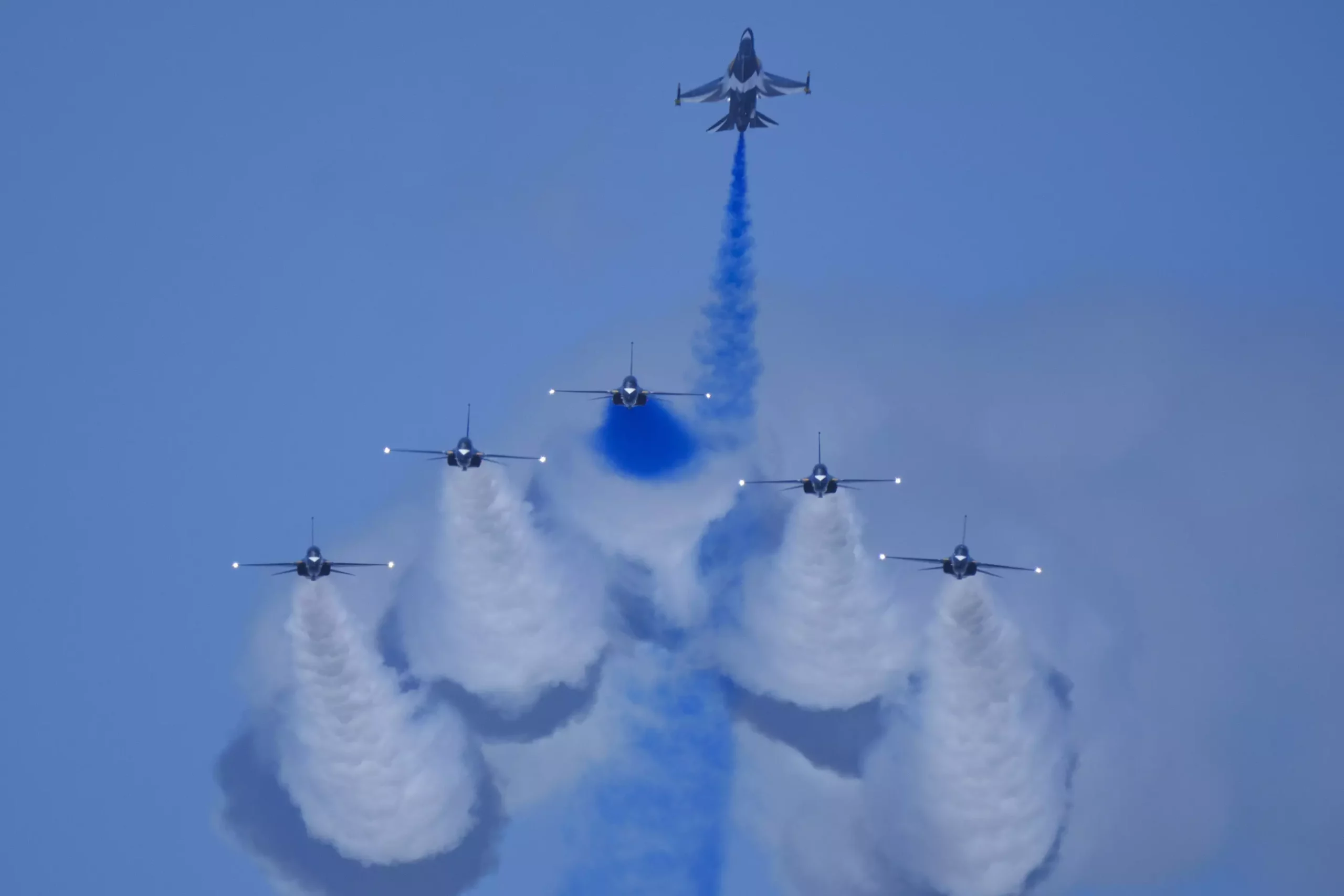The Singapore Airshow, renowned as Asia’s largest aviation event, made a grand comeback this year with a plethora of exciting aerial displays, including the showcase of China’s COMAC C919 narrow-body airliner. This year marked a significant milestone as the event welcomed the public for the first time since 2020, when a scaled-down version was held amidst the onset of the COVID-19 pandemic. With over 1,000 exhibitors participating, the biennial show signifies a revitalization of the region’s aviation sector.
According to Subhas Menon, the director general of the Association of Asia Pacific Airlines, this year’s Singapore Airshow was buzzing with activity, reflecting the resurgence of the aviation industry in the Asia-Pacific region. Menon highlighted that passenger loads in the area are nearing pre-pandemic levels, projecting Asia Pacific to contribute significantly to the global air travel demand growth in the current year. The event served as a platform for exhibitors to showcase cutting-edge technologies such as autonomous vehicles, signaling a progressive approach towards the future of aviation.
Despite the positive outlook for the aviation sector, Menon pointed out the looming challenges posed by supply chain disruptions, particularly in terms of parts and personnel shortages. The industry is grappling with delayed deliveries of aircraft and spares due to the prevailing supply chain issues, which are exacerbated by trade tensions and geopolitical complexities worldwide. This bottleneck in the supply chain has impeded capacity growth, causing concerns for the seamless expansion of air travel services.
One of the highlights of the airshow was China’s Tibet Airlines finalizing an order for 40 C919 passenger jets and 10 ARJ21 regional jets from Commercial Aircraft Company of China (COMAC). The deal, which was sealed during the event, underscores COMAC’s efforts to establish itself as a competitive player in the single-aisle aircraft segment alongside industry giants like Airbus and Boeing. With over 1,000 orders received for its C919 model, COMAC is positioning itself as a formidable contender in the aviation market, although the aircraft is currently certified only in mainland China.
The flying display at the Singapore Airshow featured an array of captivating performances by various air forces, showcasing their prowess in aerial acrobatics. From Singapore’s F-15SG fighter jet to China’s COMAC C919 and Airbus’ A350-1000 aircraft, the event presented a spectacle of aviation excellence. The Indian, Indonesian, Australian, and South Korean air forces added to the excitement with their stunning maneuvers and precision flying, culminating in a mesmerizing display of skill and coordination.
Apart from the thrilling aerial displays, this year’s airshow also underscored the importance of sustainable aviation practices and technological innovation in the industry. Airbus led the way by utilizing sustainable aviation fuel made from feedstock like cooking oil and tallow, in conjunction with conventional jet fuel, for its A350-1000 aircraft display. Hyundai’s Supernal unit, specializing in advanced mobility aircraft such as air taxis, showcased cutting-edge solutions for future air transport. The event served as a platform to discuss and explore sustainable practices and innovative technologies shaping the future of aviation.
The Singapore Airshow 2022 not only celebrated the resurgence of the aviation sector in Asia but also highlighted the industry’s resilience in the face of challenges. With a focus on technological innovation, sustainability, and captivating aerial displays, the event showcased the dynamic and evolving landscape of aviation. As the world looks towards a future of interconnected and sustainable air travel, the Singapore Airshow stands out as a beacon of progress and innovation in the aviation industry.


Leave a Reply